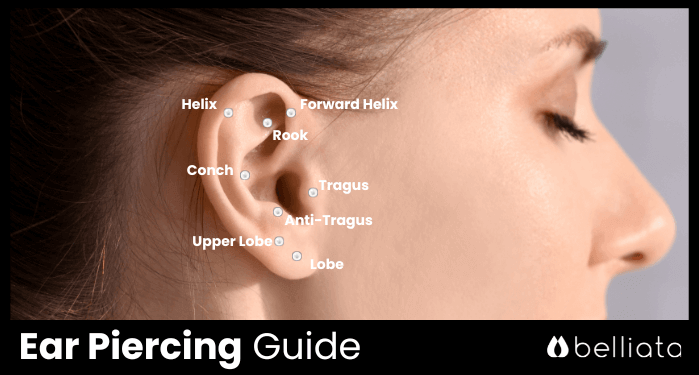Ear Piercing 2026 Guide: Cost, Pain Level, and Placement Options
Posted on Sep 19, 2023
Do you want to be brave and get your ears pierced in something unusual way, but don’t know to start from? We've got everything you need to know as all answers on your questions you can find in our guide that will help you get started.
What Is Ear Piercing?
The term “piercing” actually covers a range of different techniques, types of jewelry, and body parts. Typically, piercers use needles or a needle gun to make holes in the earlobe or other parts of the ear so that jewelry - earring, stud, barbell or ring - can be worn. You can make one hole or two holes side by side, which will look more unusual and exciting.
You should carefully take care of the piercing site to prevent infection and inflammation. If all goes well, after a few weeks you can replace the original jewelry with something more preferable for your mood.
Types of Ear Piercing
Ears are one of the most popular piercing places, and you’ll have many types of ear piercings to choose from. People select different ear piercings based on the look they’re going for and how traditional or edgy they want the earring to be.
There are multiple placement options when it comes to ear piercings. Here are the ear piercing names that you can discuss with your piercer to figure out what’s right for you:
Lobe Piercing
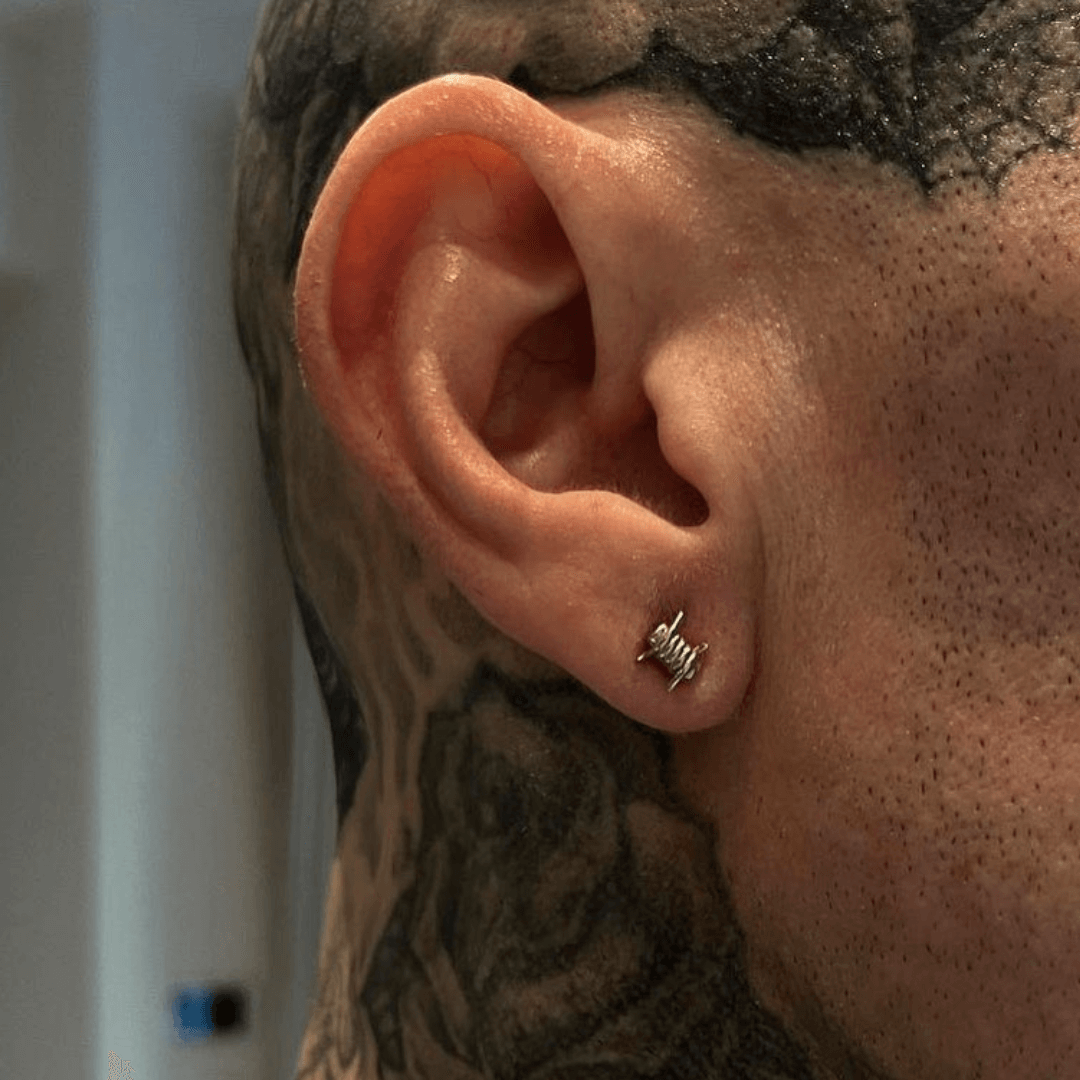
These are the ones that you might have seen performed with a piercing gun (which we don’t recommend, by the way). Many people pierce the soft tissue of their ear lobes once or multiple times to wear a stud, sings or other jewelry.
Helix Piercing
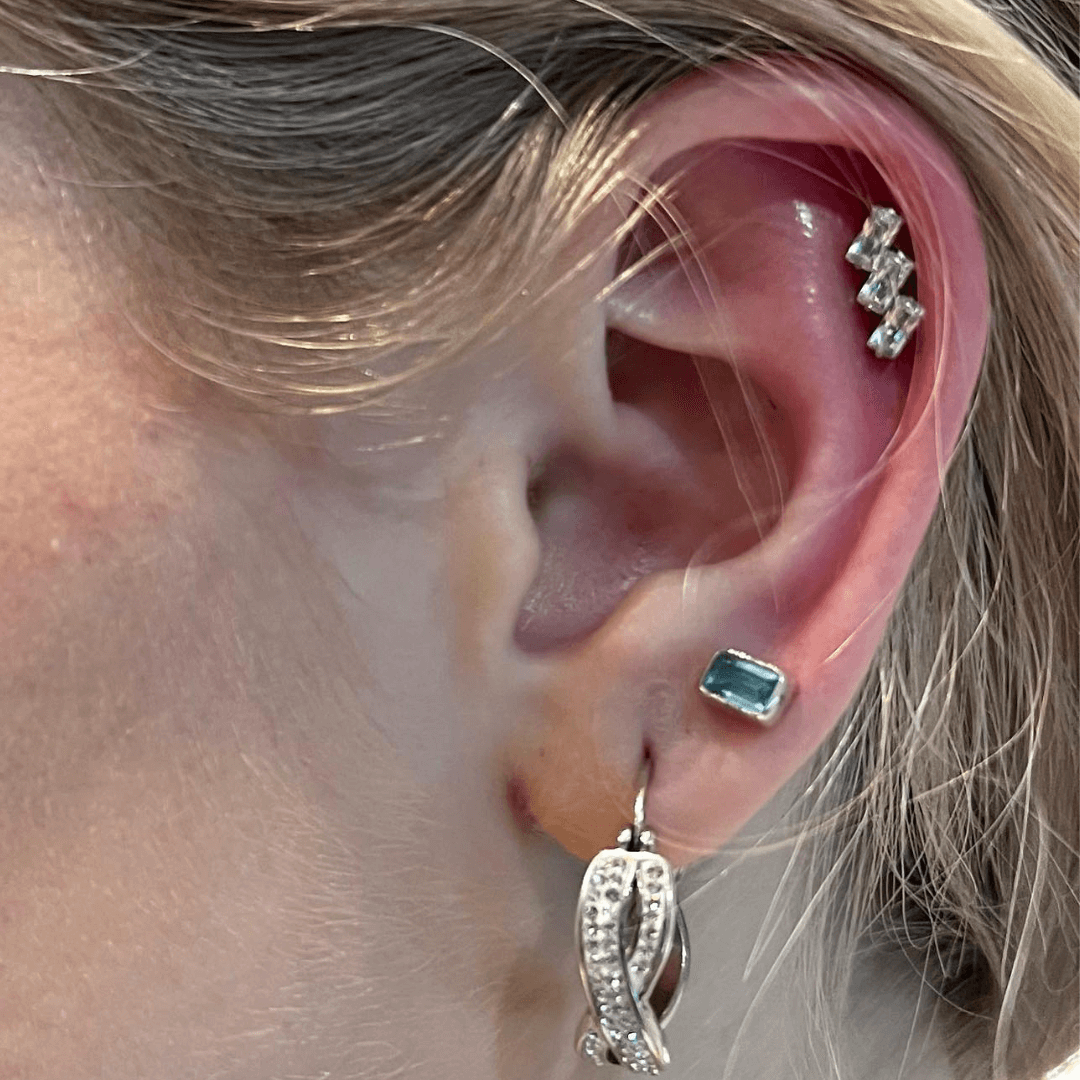
This is worn along the edge of your upper ear’s cartilage. Many people wear a ring here.
Forward Helix Piercing
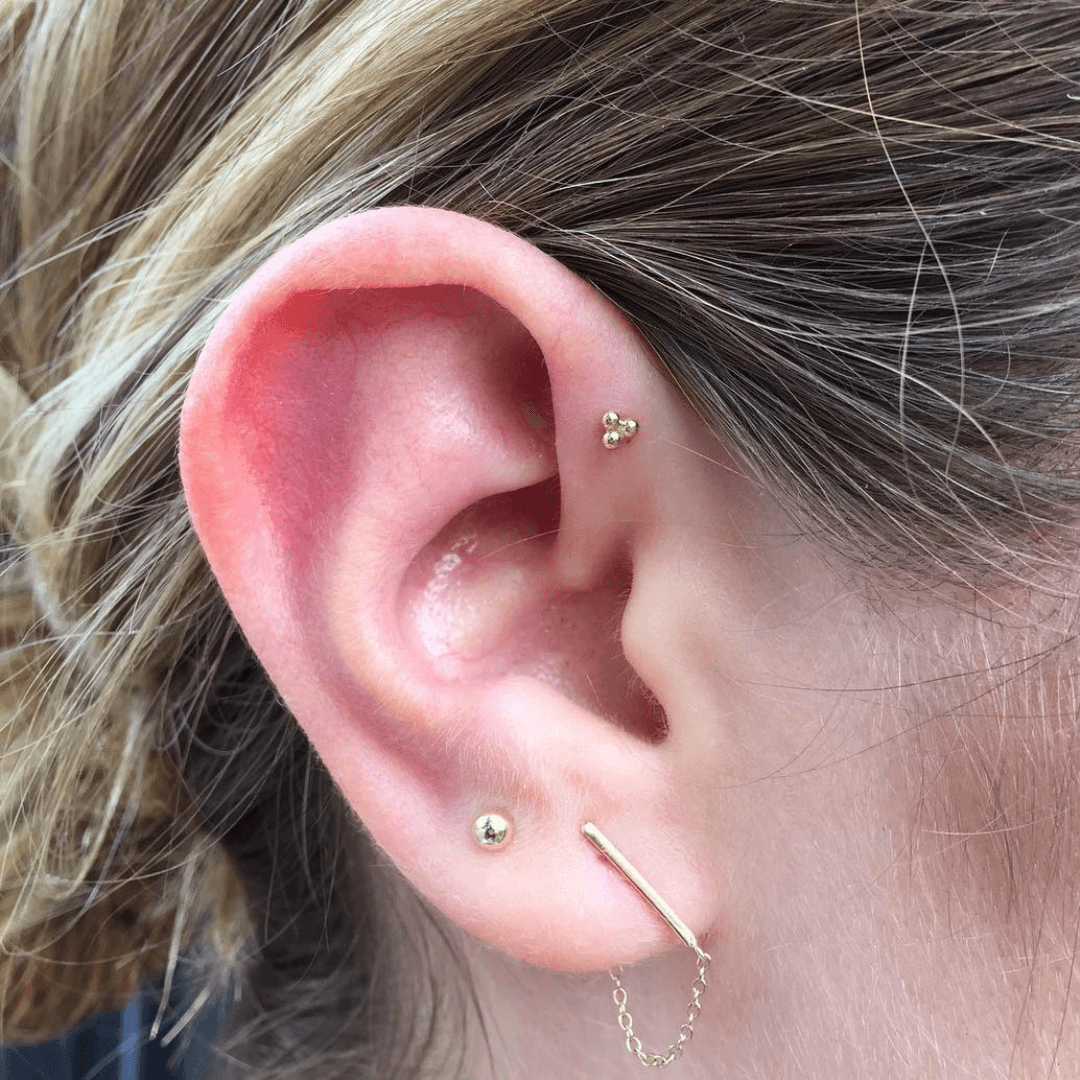
The placement of a forward helix is on the curled inner edge of your upper ear cartilage. Many people wear tiny rings in their forward helix piercings.
Orbital Piercing
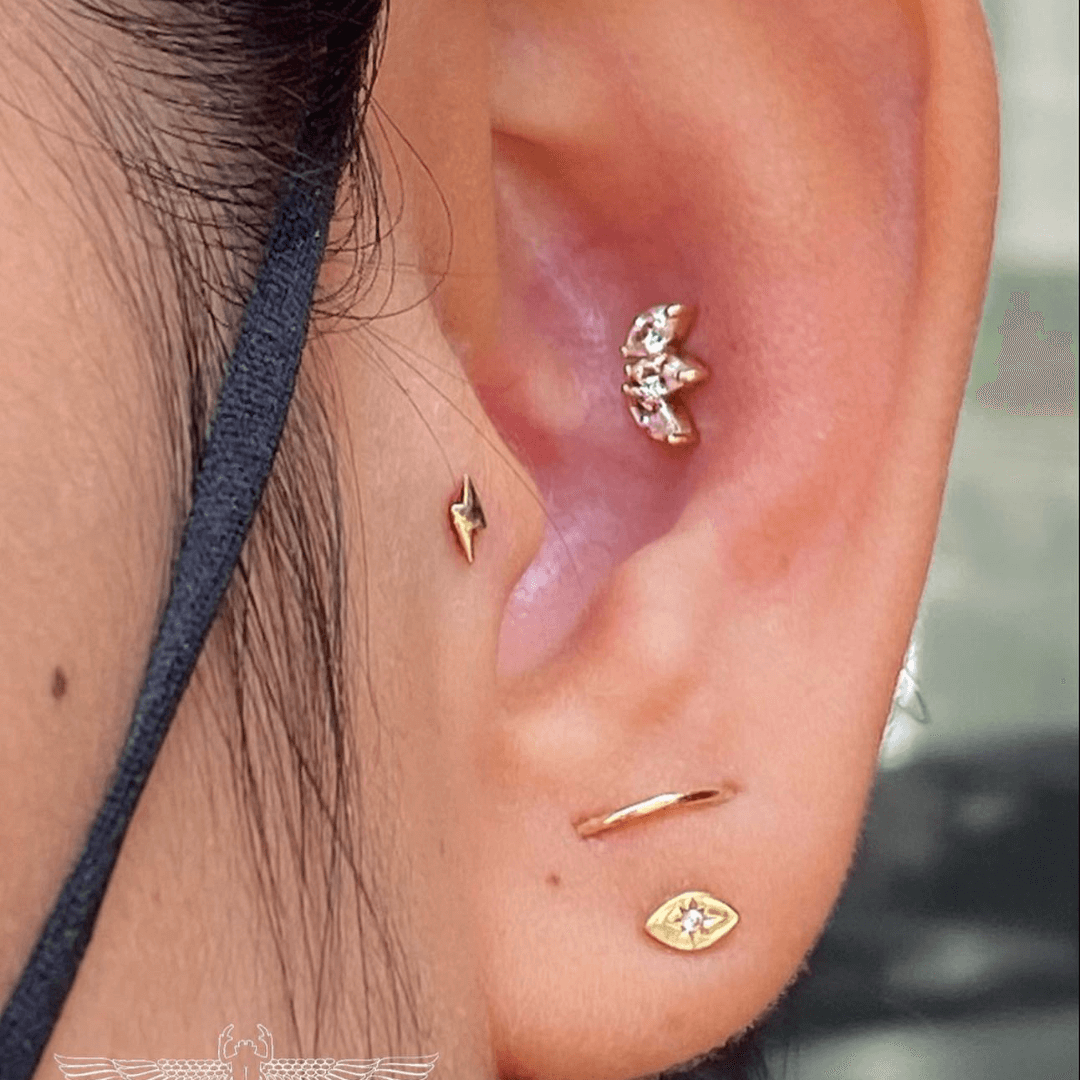
This upper ear piercing is actually two holes, attached to a single piece of jewelry. This is most common on the lobe or helix region, but some piercers can place it on the inner ear.
Conch Piercing
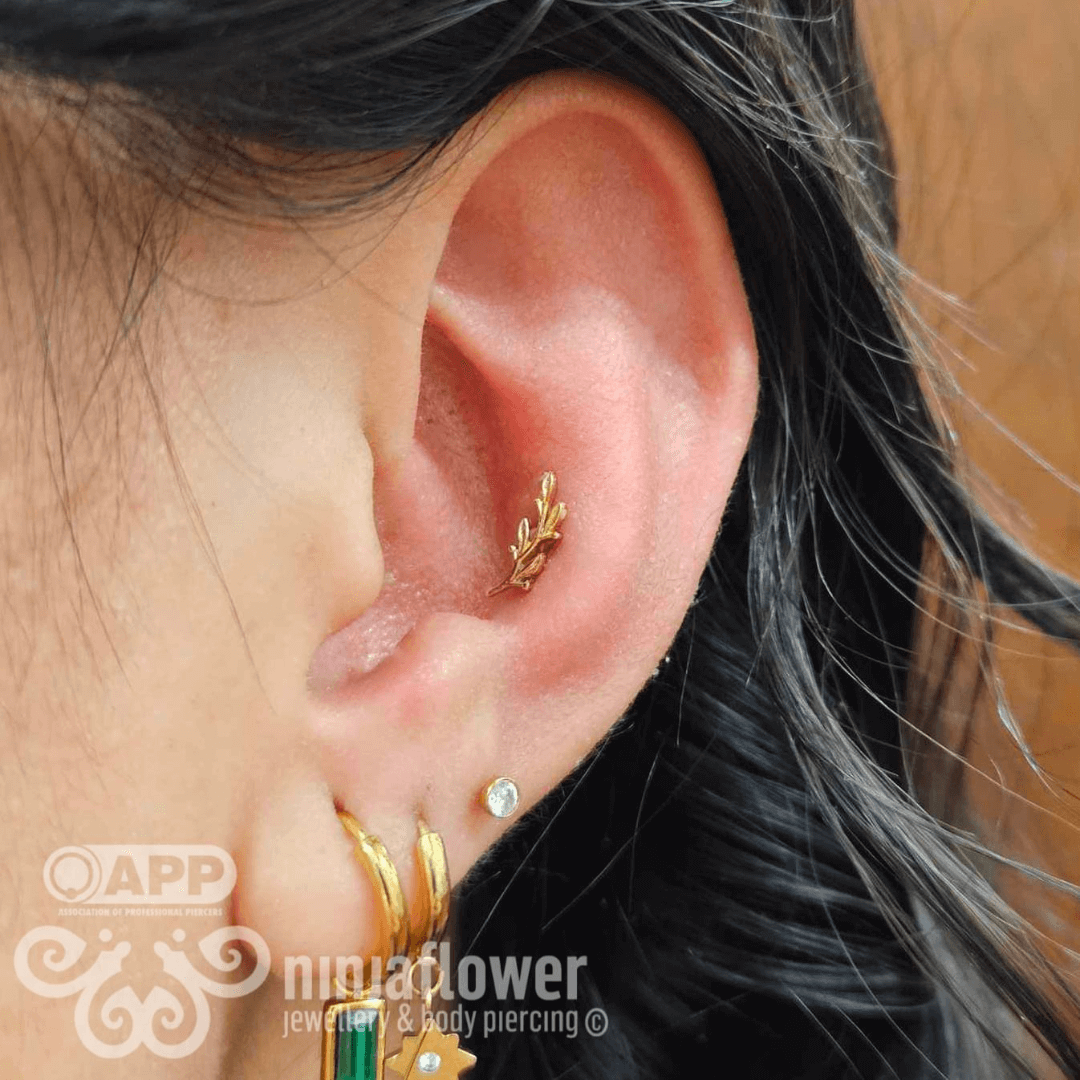
This is one of the most customizable ear piercing placements, as it’s in the middle part of your lower ear cartilage.
Rook Piercing
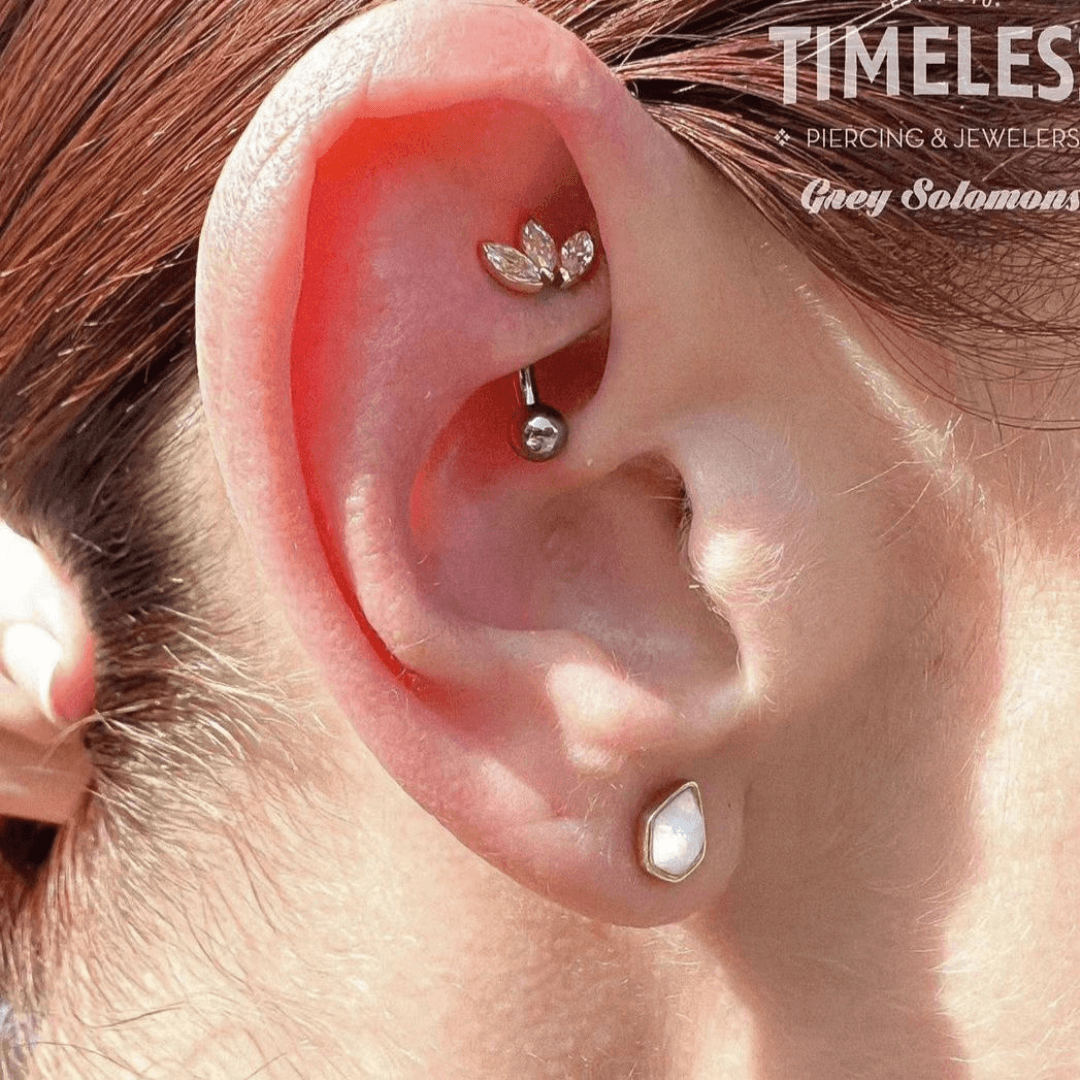
This placement is performed on the smaller, upper inner fold of cartilage. It’s just big enough for a tiny ring or stud.
Daith Piercing
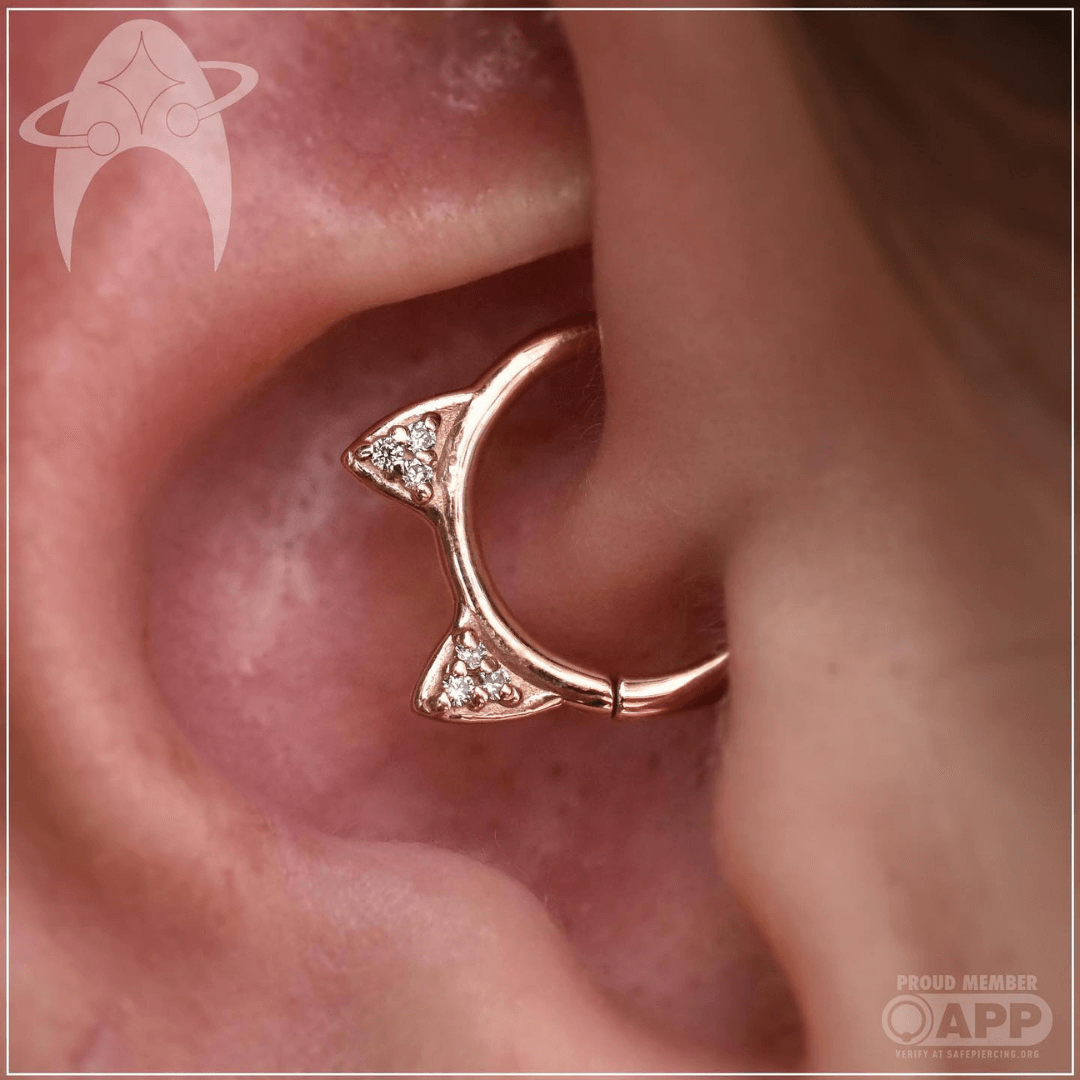
This is on the inner ear, right through the inner fold right above the opening to the ear canal.
Tragus Piercing
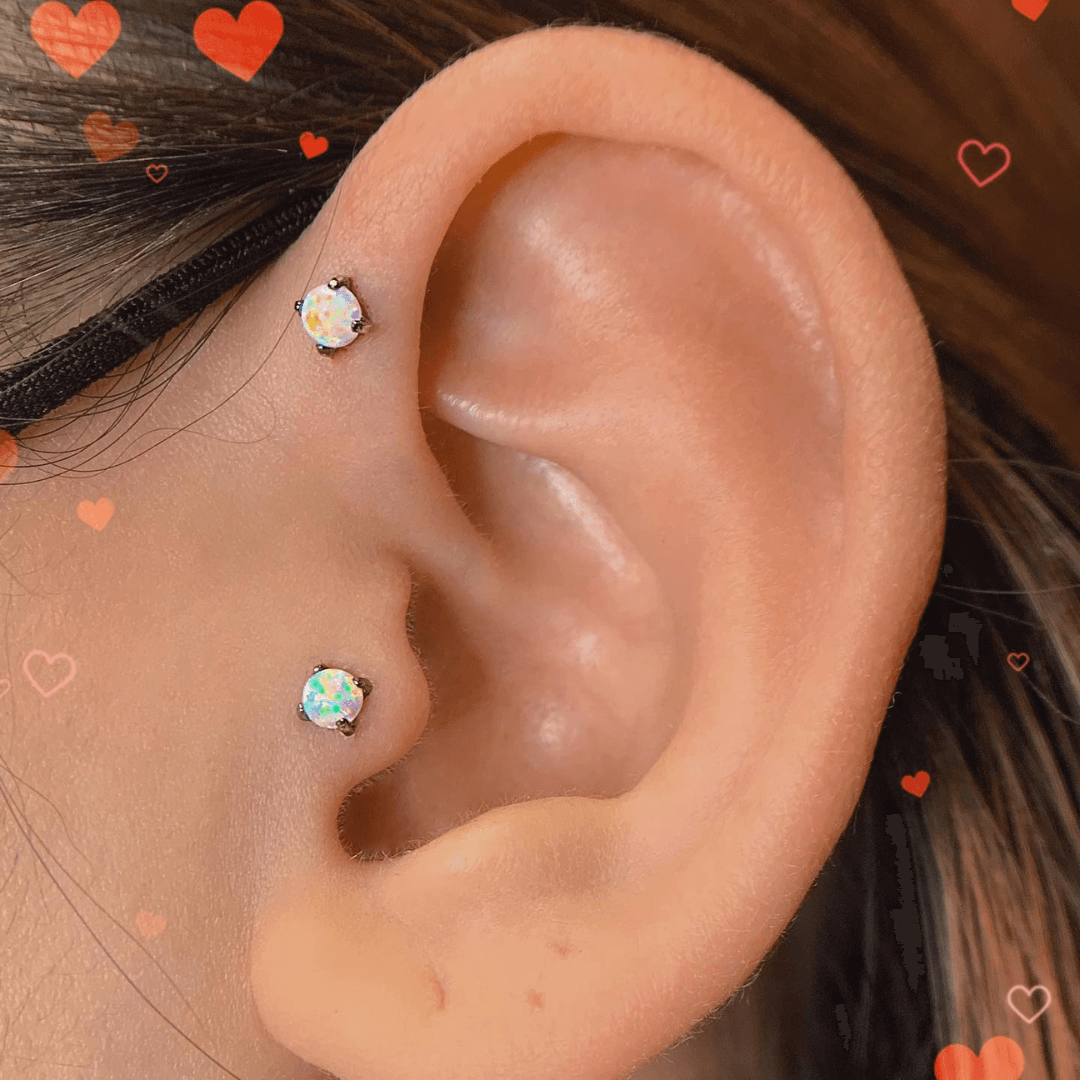
This piercing goes through the rounded bit of cartilage protecting the ear canal. It’s a very popular place for a stud.
Anti-Tragus Piercing
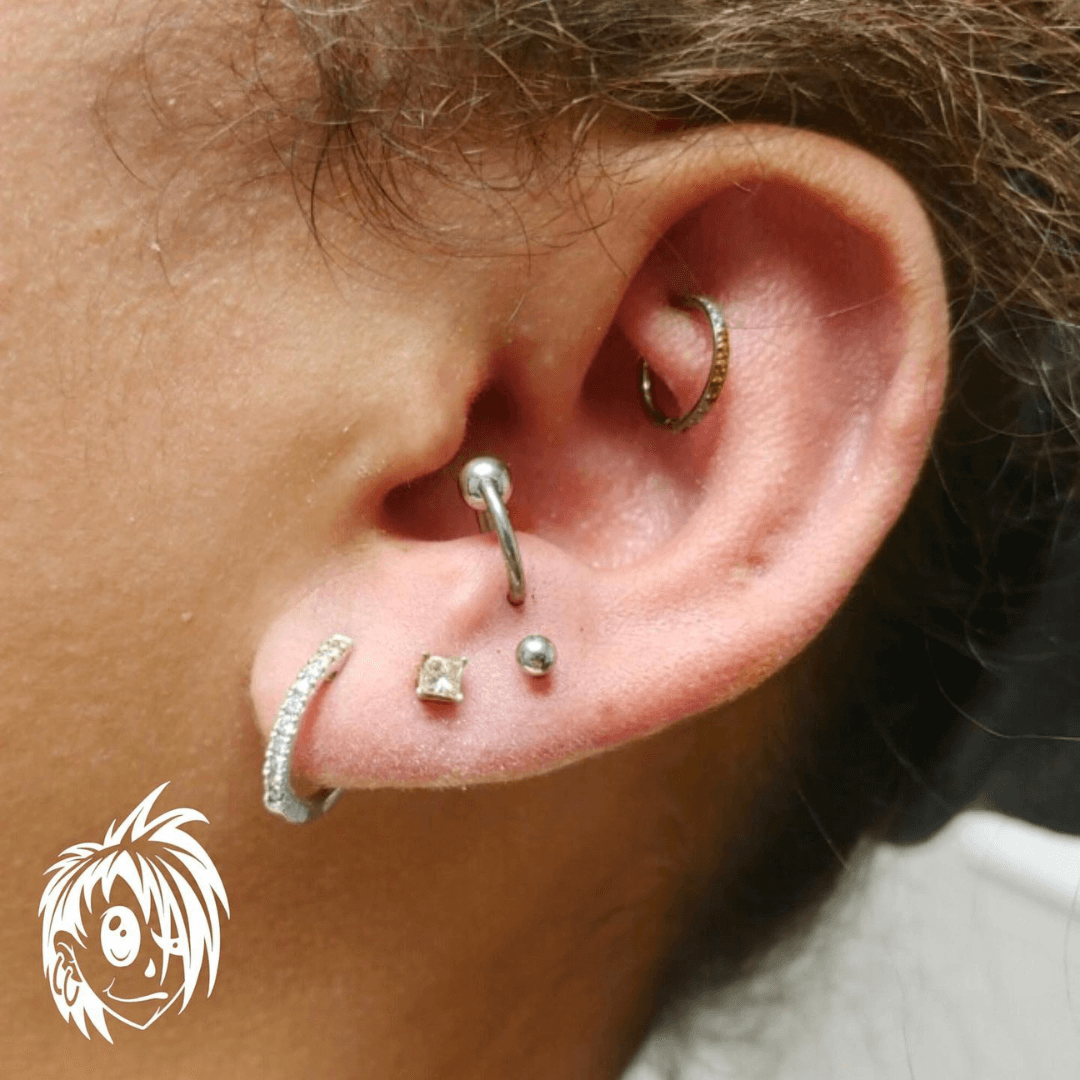
The placement for the anti-tragus is on the outer cartilage fold opposite the tragus.
Industrial Piercing
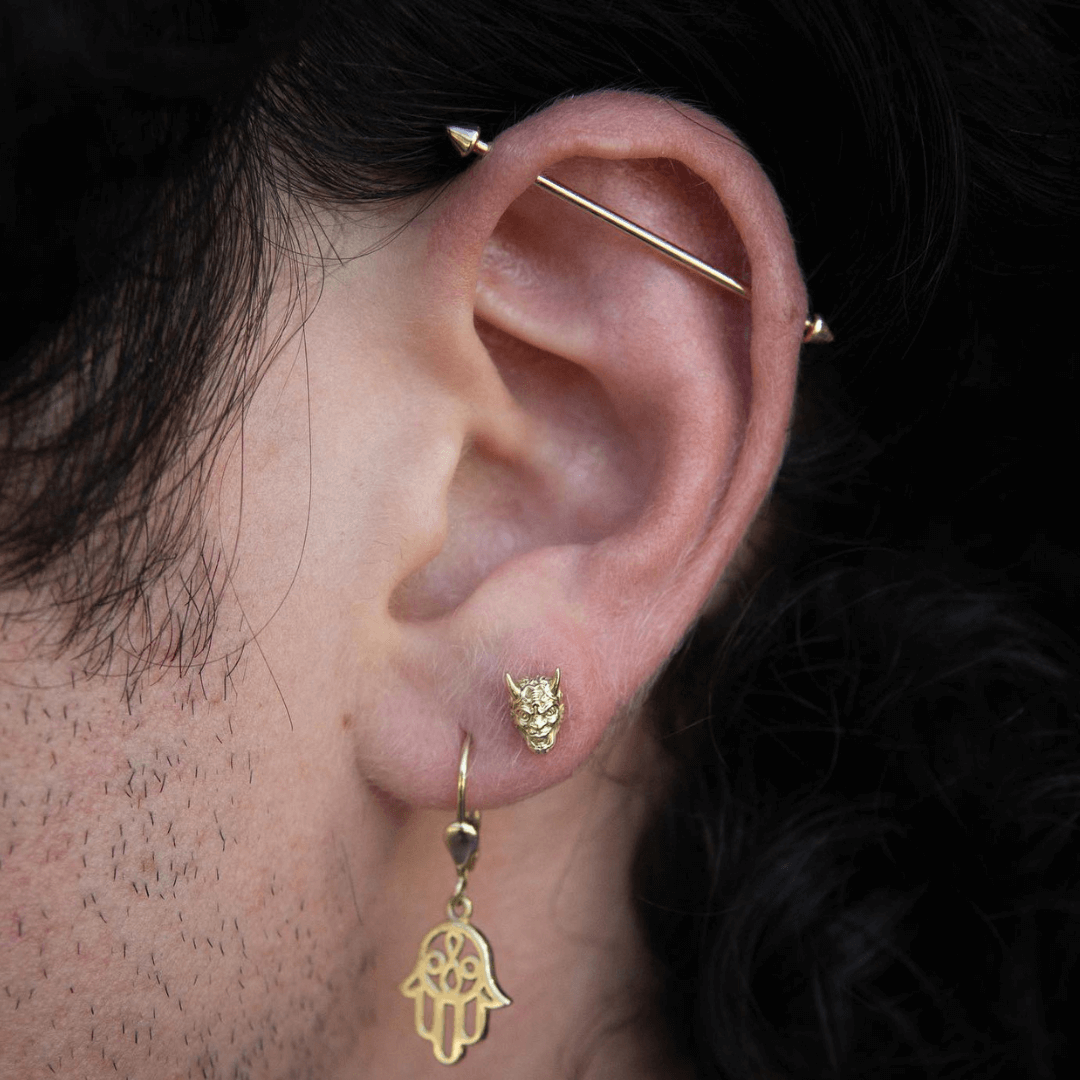
Also called a scaffold, this is a long, straight car going through two parts of the upper ear.
Ear Piercing Chart
The ear piercing chart visually shows off the different areas of your ears can get pierced and how they look. The chart is very helpful in deciding which type of ear piercing you want. While there's no universally standardized chart, here's a general description of some common ear-piercing placements.
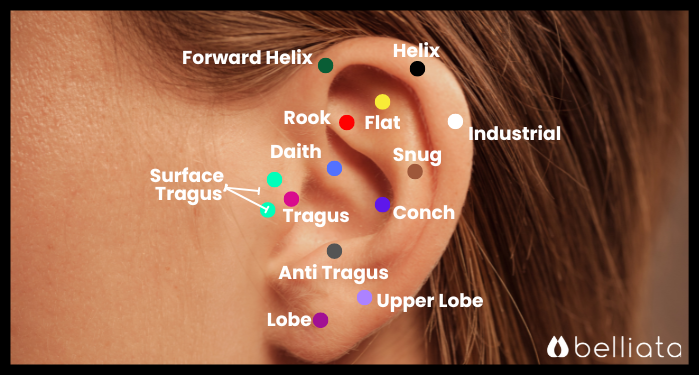
Who Is Ear Piercing Recommended For?
Almost anyone can get earrings or studs in their earlobes, and this is a good choice if you’ve never gotten anything pierced before (as long as you’re old enough to take care of it while it heals).
If you’re looking to get something other than your lobe pierced, make sure that you will be able to wear the rings or studs for the full healing time- you won’t be able to take it out while you’re at work, for example.
Why Are Pierced Ears Popular?
Ears are one of the most common types of piercings because they’re a good mix of traditional and modern styles. They’re versatile, and there’s something for everyone.
How Much Does It Cost To Get Your Ears Pierced?
How much does it cost to get your ears pierced? Ear piercing costs anywhere from $30 to $80, depending on placement and the piercing shop that you visit.
Does Piercing My Ears Hurt?
Getting your ear lobe pierced is not bad at all, whereas cartilage will be more uncomfortable as the needle has to go through a harder surface. An infected ear piercing can be very uncomfortable, so make sure to follow your piercer’s care instructions.
How Long Do Ear Piercings Take To Heal, And What Are The Risks?
An ear lobe will take about four to six weeks to heal, while cartilage can take up to twelve weeks.
When explaining how to clean ear piercing, most piercers advise against using rubbing alcohol, and wash with saline or mild soap twice a day, turning the stud or ring afterwards with clean hands or while wearing gloves.
Getting your ear lobe pierced is relatively low-risk. Keep the area clean and be careful when applying lotion or hair products. Cartilage piercings are more prone to irritation and infection, since there’s less blood flow there.
If you need to know how to treat an infected ear piercing, apply a warm pad or compress to the swelling, then clean it with saline. Most piercing shops sell sterile cleaners. If it doesn’t improve in a day or two, visit a doctor to get antibiotic cream.
Where To Get Ears Pierced?
The easiest way to find a great piercing studio near you is to use Belliata's free booking platform. Search Belliata for “ear piercing near me” and get a list of the best piercing studios of your city.
On Belliata, companies post their prices and portfolios, and clients of these salons leave comments and rate the studios. The functionality of Belliata allows you to check the availability of free time from the piercer and make an appointment with him at a time convenient for you.
We recommend that you contact only trustworthy professionals, because piercing is an external intervention in the body and it is important to be completely confident in the competence and experience of the piercer.
Recommendations
Now you know that ear piercings are more common and are less risky than other body piercings, but they can still cause complications if not handled safely. To avoid emergency we recommend everyone with newly pierced ears follow the rules of hygiene so you can enjoy your new earrings in your beautiful ears.
If you would like to learn more about piercing please check the following articles:
- Types Of Nose Piercing
- Types Of Lip Piercing
- Types Of Eyebrow Piercing
- Types Of Tongue Piercing
- Types Of Face Piercing
- Types Of Belly Piercing
- Types Of Nipple Piercing
- Types Of Genital Piercing
Citations
Complications of ear piercing: treatment and prevention
https://europepmc.org/article/med/1764962
Ear piercing–a cause of nickel allergy in schoolgirls?
https://onlinelibrary.wiley.com/doi/abs/10.1111/j.1600-0536.1985.tb02580.x
Ear piercing techniques and their effect on cartilage, a histologic study
https://www.sciencedirect.com/science/article/pii/S1748681507003348

